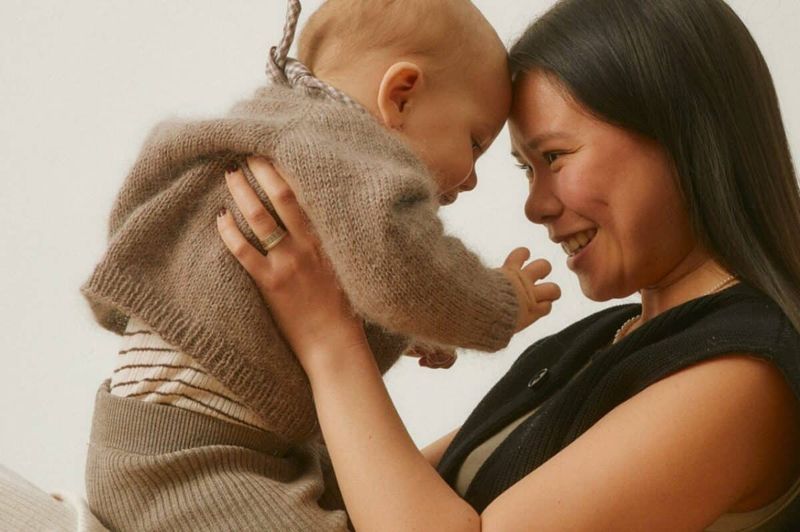16 Signs of Strength Seen in Women Navigating Abusive Relationships

Many women trapped in abusive relationships show remarkable strengths that ironically keep them bound in harmful situations. These traits often begin as positive qualities that get twisted within the toxic dynamic. Understanding these characteristics helps us recognize warning signs in ourselves or loved ones, while honoring the complex reality that victims face daily.
1. Deep Empathy

Her heart breaks for everyone else’s pain. She instinctively understands what others feel, creating a dangerous tendency to excuse her abuser’s behavior by focusing on their childhood wounds or current struggles. This extraordinary compassion becomes a double-edged sword.
While it shows her beautiful capacity for human connection, it also blinds her to the reality that she cannot heal someone through her suffering. Friends might notice how she constantly explains away her partner’s actions: “He had such a hard childhood” or “He’s just stressed from work.” This empathy, which would flourish in healthy relationships, instead becomes the chain that binds her to someone who causes harm.
2. High Emotional Intelligence

She reads the room before anyone else can. Long before others notice a shift in mood, she’s already adjusting her behavior, choosing her words carefully, or preparing for what might come next. This remarkable sensitivity developed as both gift and survival mechanism. She can predict her partner’s emotional state from the sound of footsteps or the way a door closes.
Her ability to anticipate needs would be celebrated in healthier circumstances. Instead, this intelligence gets redirected toward constant vigilance. She becomes hyperaware of tiny details—the wrong tone, a misplaced item, a slightly delayed response—that might trigger anger. Her emotional radar, always scanning for danger, rarely gets to rest.
3. Unwavering Loyalty

She stands firm when everyone else walks away. Her commitment runs soul-deep, believing that true love means weathering every storm together, no matter how violent the tempest becomes. This steadfast loyalty would be celebrated in healthy relationships. Yet in abusive dynamics, it transforms into a trap she builds around herself. “I made a promise,” she explains, when friends question why she stays.
“For better or worse, remember?” The quality that makes her an extraordinary friend and partner becomes weaponized against her. Her abuser learns quickly that her word is unbreakable, that she will endure almost anything before breaking a commitment—and they exploit this beautiful trait to maintain control.
4. Persistent Optimism

“Tomorrow will be better” becomes her daily mantra. She clings to moments of kindness like precious gems, building elaborate futures around brief glimpses of the person she first fell in love with. Her hope creates a powerful filter through which she views her relationship. After each explosive argument or frightening episode, she focuses on the apology, the flowers, the promises—not the escalating pattern of harm.
Friends marvel at her ability to stay positive despite everything. What they don’t see is how this sunny outlook keeps her trapped in a cycle of disappointment. Each “good day” resets her expectations, convincing her that change is just around the corner, if only she can hold on a little longer.
5. Forgiving Nature

Her capacity for forgiveness seems almost supernatural. Where others would draw hard boundaries, she offers second, third, and twentieth chances, believing deeply in redemption and growth. This beautiful quality stems from her understanding that everyone makes mistakes. She remembers her partner’s genuine remorse, the tears in their eyes when promising “never again.” Each apology feels different, special, sincere.
Yet this forgiveness creates a dangerous pattern. Her partner learns there are no lasting consequences—that her forgiveness can be counted on regardless of the offense. Without accountability, the cycle continues: transgression, apology, forgiveness, repeat. Her merciful heart becomes the perfect environment for ongoing harm.
6. Diminished Self-Worth

She wasn’t always this way. Once confident and self-assured, years of subtle criticism and manipulation have eroded her sense of value. The woman who once knew her worth now questions whether anyone else would want her. Small comments accumulate like poison: “You’re lucky I put up with you” or “No one else would tolerate your flaws.”
These messages, repeated countless times, eventually rewrite her internal narrative. Her wardrobe slowly shifts to hide parts of herself her partner criticizes. She apologizes constantly, even for breathing too loudly. Friends who knew her before barely recognize this new version—someone who speaks softly, takes up less space, and believes she deserves the treatment she receives.
7. Skilled Conflict Avoidance

She becomes a master at reading tiny signals that precede anger. The slight tightening around his eyes, a particular tone of voice, the way he puts down his fork—all trigger her internal alarm system. Her response is immediate but subtle. She shifts topics, makes herself smaller, or quickly agrees with whatever was just said. To outsiders, these moments pass unnoticed.
They don’t see her constant calculations: which topics are safe today, which opinions can be expressed, what mood prevails. This hyperawareness originally developed as protection, a way to prevent explosions. Ironically, it now maintains the abusive dynamic by creating an environment where difficult conversations never happen. Real issues remain unaddressed as she expertly navigates around potential landmines.
8. Extraordinary Pain Tolerance

Pain becomes her normal. What would send others running instead gets categorized as just another difficult day. This remarkable endurance develops gradually, like a callus forming over tender skin. She doesn’t recognize how her threshold has shifted. The treatment she now accepts would have shocked her earlier self. Friends sometimes glimpse her wincing from a “minor” incident, not realizing she’s comparing it to far worse experiences that have reset her baseline.
This capacity to endure serves her in many areas of life, helping her persist through genuine hardships. Yet in her relationship, this strength becomes a liability—allowing increasingly harmful behavior to continue without consequence. Her resilience, admirable in other contexts, keeps her trapped in escalating danger.
9. Natural Caretaking Instinct

Her nurturing spirit shines brightest when caring for others. She anticipates needs before they’re expressed, finding deep fulfillment in easing others’ burdens and creating comfort around her. This beautiful instinct becomes distorted in her relationship. She begins taking responsibility for her partner’s emotions, believing their anger or violence reflects her failure to care properly.
“If I had dinner ready on time…” or “If I hadn’t upset him…” become common refrains in her thinking. Friends notice how she constantly monitors her partner’s mood, adjusting her behavior to maintain calm. This caretaking, which would flourish in mutual relationships, instead becomes exhausting emotional labor. She pours endlessly from an empty cup, believing that perfect care will eventually create perfect peace.
10. Family Preservation Instinct

“A broken home.” These words haunt her decisions, especially if children are involved. She remembers her own childhood promise never to put kids through divorce, or perhaps religious teachings about family sanctity echo in her mind. Each morning, she puts on a brave face, creating moments of normalcy and joy despite the undercurrent of tension. She becomes an expert at damage control, quickly wiping away tears before the children return from school.
Her determination to maintain family stability comes from love. Yet this noble instinct keeps her in harm’s way. She doesn’t realize children absorb everything—that they’re learning relationship patterns from what they witness. Her sacrifice, intended to protect them, instead normalizes dysfunction that may echo through generations.
11. Cultural and Religious Conditioning

Sacred vows and community expectations weigh heavily on her conscience. Phrases like “marriage is forever” and “a good wife endures” were planted deep in her understanding of womanhood long before she met her partner. Her faith or cultural background provides genuine strength in many areas of life. Yet these same beliefs become chains when applied without nuance to abusive situations. She fears judgment from family members who don’t know the full story, or religious leaders who emphasize forgiveness without accountability.
Community gatherings become performances where she must pretend everything is fine. She worries about bringing shame to her family name. These powerful social and spiritual forces, meant to support healthy families, instead isolate her from potential help and reinforce her silence.
12. Financial Vulnerability

Money becomes both prison and weapon. Perhaps she left her career to raise children, or her partner gradually took control of accounts “to protect the family finances.” Now, years later, she has limited access to resources that would enable independence. Each escape attempt requires answering impossible questions: How will I feed my children? Where will we live? What about healthcare?
Her partner may reinforce these fears: “You’ll end up homeless without me” or “No one will hire you now.” Even women with careers face financial abuse. Joint accounts get drained, credit gets ruined, or partners sabotage job opportunities. This economic entrapment isn’t about poor money management—it’s a deliberate strategy that exploits her practical concerns for herself and those who depend on her.
13. Powerful Trauma Bonding

The emotional rollercoaster creates a biochemical addiction few understand. Moments of terror followed by passionate reconciliation trigger powerful hormonal responses—cortisol, adrenaline, and dopamine creating an intoxicating neurological cocktail. She finds herself craving the intense relief that comes after conflict ends. The makeup period feels like falling in love all over again, with heightened intimacy and connection that seems deeper than what “normal” relationships offer.
These dramatic cycles can make healthier relationships seem boring by comparison. Friends get frustrated when she returns to her abuser, not recognizing she’s fighting an attachment as powerful as any addiction. This bond isn’t about love—it’s a psychological response to intermittent reinforcement and shared intensity. Breaking free requires understanding this invisible force rather than simply deciding to leave.
14. Fear of Social Judgment

“But he seems so nice at parties.” This comment represents her greatest fear—that no one will believe her truth. Her abuser often maintains a charming public persona that contradicts her private experience. She worries about the questions that will follow disclosure. Why did you stay so long? Why didn’t you call police? What did you do to provoke him?
These anticipated judgments keep her silent, maintaining a carefully constructed facade of normalcy. Social media compounds this pressure. While others post highlight reels, she feels compelled to participate, sharing smiling family photos that preserve the illusion. Each “couple goals” comment cuts deeply. This fear of disbelief or blame creates a secondary trauma—isolation in her suffering while publicly pretending everything is fine.
15. Internalized Guilt and Shame

“This is all my fault.” These five words echo constantly in her mind. Years of being told she provokes, deserves, or imagines the abuse gradually rewire her understanding of reality. She begins monitoring her own behavior with merciless scrutiny. If only she were more patient, more attractive, more organized—perhaps then the relationship would heal.
This misplaced responsibility becomes a strange form of hope: if she caused the problem, maybe she can fix it through perfect behavior. Shame keeps her isolated from potential support. How could she admit what happens behind closed doors when she believes it reflects her own failure? This burden of undeserved guilt becomes yet another invisible barrier to freedom, convincing her she doesn’t deserve better treatment.
16. Hope for Redemption

She remembers the person they once were—or perhaps the person she believed they could become. This memory isn’t entirely fantasy; most abusers show genuine positive qualities alongside harmful behaviors, creating a confusing reality. During calm periods, glimpses of this better self reemerge. A thoughtful gesture, a moment of vulnerability, or a seemingly sincere promise to change reignites her hope. “This is the real him,” she thinks.
“The other behavior is just temporary.” Her belief in transformation comes from a beautiful place—faith in human capacity for growth. She sees potential where others see only danger. This hope, which would be inspiring in other contexts, becomes the final thread keeping her tied to someone who continues causing harm despite occasional moments of goodness.

Comments
Loading…